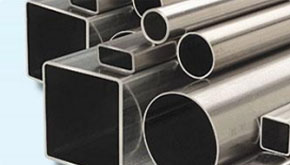Gaskets are the unsung heroes of machinery, providing crucial seals that prevent leaks and maintain efficiency in a wide range of applications. From automotive engines to industrial pipelines, the right gasket can make all the difference in ensuring smooth operations. However, with numerous options available, selecting the perfect gasket from reputable gasket suppliers in UAE for your specific needs can be a daunting task. This guide aims to explore the world of gaskets, offering insights into different types, materials, and considerations to help you make an informed choice.
Types of gaskets:
Gaskets come in various types, each designed for specific applications and environments. Understanding the differences between these types is essential for selecting the most suitable option. Common types include:
Flat gaskets: Simple and cost-effective, flat gaskets are ideal for sealing static connections where there is minimal flange movement.
Spiral wound gaskets: Combining the resilience of filler material with the structural support of a metallic winding, spiral wound gaskets are versatile and suitable for high-pressure and high-temperature applications.
Ring gaskets: Also known as O-ring gaskets, these are circular seals commonly used in hydraulic and pneumatic systems due to their excellent sealing properties.
Jacketed gaskets: Designed for extreme temperatures and corrosive environments, jacketed gaskets consist of a metallic outer shell enclosing a soft filler material.
Choosing the right material:
The material composition of a gasket plays a crucial role in its performance and longevity. Factors such as temperature, pressure, chemical compatibility, and application-specific requirements should influence your material selection. Some common materials used for gaskets include:
Elastomers (such as rubber or silicone): Ideal for applications requiring flexibility and resistance to compression set.
Compressed non-asbestos fiber: Offers good sealing properties and is suitable for a wide range of temperatures and pressures.
Metal (such as stainless steel or copper): Provides excellent durability and resistance to extreme conditions but may require additional sealing aids in certain applications.
Selecting the perfect gasket for your application requires careful consideration of various factors, including type, material, and operating conditions. By understanding the differences between gasket types, materials, and considerations, you can make an informed decision that ensures reliable sealing and optimal performance in your machinery and equipment.
